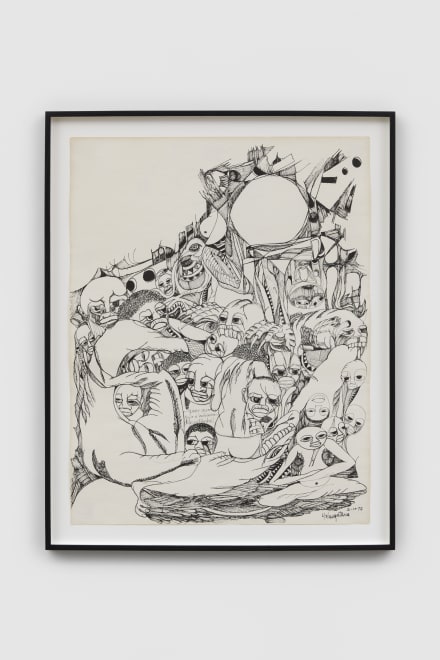Malangatana Ngwenya was a prominent figure in Mozambique, and played an important role in imagining a broader Africanist aesthetic in Europe and America. His work was intimately connected with his politics and reflects the socio-political conditions of his home country, whether during the struggle for independence (gained in 1975) or later during the civil war (1977–92).
Ngwenya joined the Mozambique liberation movement FRELIMO in 1964. The same year he was detained by the Portuguese secret police for his involvement with FRELIMO and imprisoned for eighteen months. The period between his release and 1971, when he was awarded a grant from the Lisbon-based Gulbenkian Foundation to study printmaking and ceramics in Portugal, was an important one for his art. During this time he continued to depict the tragic consequences of war – violence, hunger and death – and was prolific in his output, holding numerous exhibitions in Mozambique and accepting commissions to paint large-scale murals. After independence, Ngwenya became more active politically and his artistic production declined between 1974 and 1978.
Malangatana's work was recently included in the group exhibition Surrealism Beyond Borders at Tate Modern (2022).

